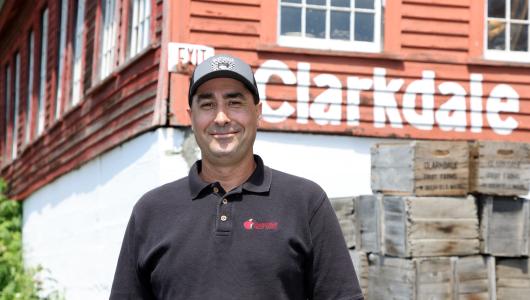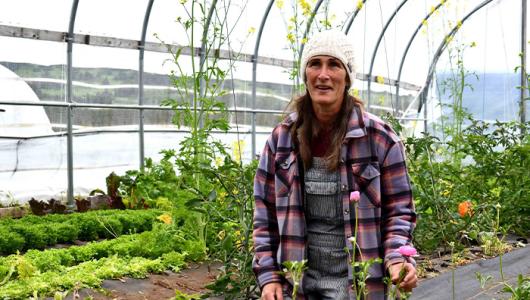Raised on a family farm and now raising her own family on a hobby farm, Lindsey Abentroth with the USDA Farm Service Agency can relate to the plans, dreams and ideas of new farmers. In this Ask the Expert, Lindsey discusses her role connecting aspiring farmers to the resources they need to start, expand, or sustain their operations as North Dakota’s Beginning Farmer and Rancher Program Coordinator.
How long has the USDA effort of serving beginning farmer and ranchers been around, and how does it work?
The 2018 Farm Bill directed USDA to create a National Coordinator position in the department and state-level coordinators in four of its agencies – FSA, the Natural Resources Conservation Service, the Risk Management Agency, and Rural Development.
Sarah Campbell is the National Coordinator who leads USDA’s beginning farmer and rancher efforts. She works closely with the regional and state coordinators like me to increase beginning farmer participation in and access to USDA programs.
Who qualifies as a beginning farmer or rancher and what types of inquiries do you receive as a coordinator?
USDA defines a beginning farmer or rancher as someone who has operated a farm for 10 years or less. You might think that’s primarily young people, but in fact, I have received calls from people of all ages looking to start a career in agriculture, transition from another career, or who have retired. Most of these folks want to try something new. Some are veterans looking to start a career in agriculture after military service, some want to expand a business or get involved with the family farming operation, and many just enjoy getting their hands dirty.
How did you get involved in this work?
When the USDA Beginning Farmer and Rancher program launched in 2020, I was selected as an FSA Champion and through that experience, I've worked with a diverse group of producers interested in what USDA offers and have helped to drive them toward supportive program resources.
Agriculture and communication are my strong passions, so talking to people with similar goals and aspirations is a natural fit. Being raised on a northern plains crop production and livestock operation is the foundation of my sincere interest in agriculture. Early involvement in the 4-H and FFA programs introduced me to the importance of communicating my passion for agriculture.
With my diverse farming background, I have experienced some of the challenges beginning farmers and ranchers face and this experience carries through when I talk with people trying to get a start in the industry. I can empathize with those who have faced trials along the way.
What are some of the resources you provide to beginning farmers and ranchers for assistance?
Getting into agricultural production can be risky and challenging, so USDA offers many programs to assist aspiring producers. For example, the Farm Loan Discovery tool introduces producers' eligibility requirements for a variety of farm loan options and get started on application forms. If they’re already farming or ranching, the Disaster Assistance Discovery Tool can help them learn about USDA disaster assistance programs and recovery opportunities for their operation.
When I meet a beginning farmer or rancher, I listen to their plans and goals, then direct them to our educational tools or connect them with FSA specialists, as well as their local USDA Service Center.
What types of agricultural operations do Beginning Farmer and Rancher Coordinators assist?
There is a misconception that to start a farm or ranch you must have a lot of land or start big. USDA’s Urban Agriculture initiative proves that you can be a farmer in a city and or live in the country on very small acreage. It’s important to show that USDA is committed to working with farms of all sizes and in all locations, including those in urban areas.
What is most fulfilling about being a Beginning Farmer and Rancher Coordinator?
As someone who was raised on a farm, it’s important to me to help others have the same opportunities. I have met so many exceptional people in this role. Many are my coworkers who are as passionate as I am about delivering beginning farmer and rancher programs and information. Then there are the people I meet who have big dreams of helping sustain America’s food supply.
Raising my family in a rural setting allows my children to experience the benefits of agriculture and a rural lifestyle and that is what drives me to help others in this industry. Growing up in agriculture is not for the faint of heart but it is certainly rewarding. I appreciate that USDA programs support beginning farmers and ranchers so they can experience the benefits of American agriculture.


